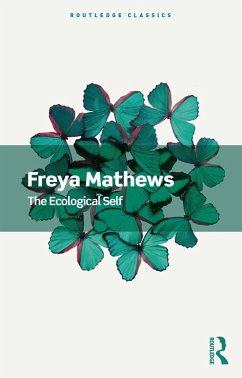Dieser Download kann aus rechtlichen Gründen nur mit Rechnungsadresse in A, B, BG, CY, CZ, D, DK, EW, E, FIN, F, GR, HR, H, IRL, I, LT, L, LR, M, NL, PL, P, R, S, SLO, SK ausgeliefert werden.
'This is the book for which serious students of "deep" ecology have been waiting ...her treatment is outstandingly lucid, highly original and tightly argued.' - Times Higher Education Supplement
'It should be read by everyone interested in environmental ethics and will be of interest to many others.' - Australasian Journal of Philosophy
'This is the book for which serious students of "deep" ecology have been waiting ...her treatment is outstandingly lucid, highly original and tightly argued.' - Times Higher Education Supplement
'It should be read by everyone interested in environmental ethics and will be of interest to many others.' - Australasian Journal of Philosophy


